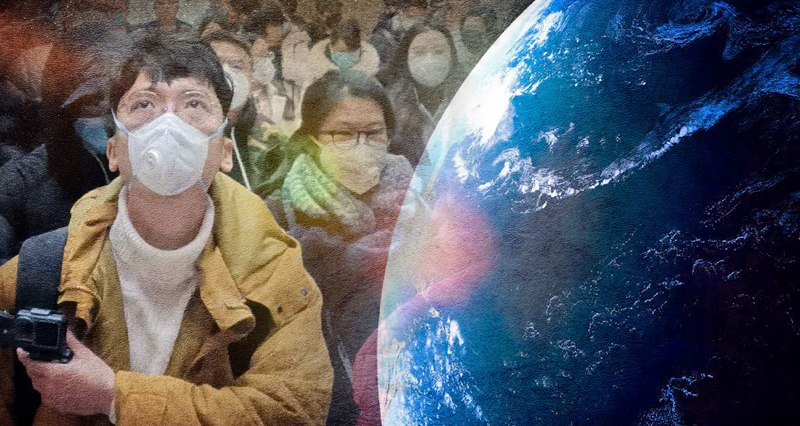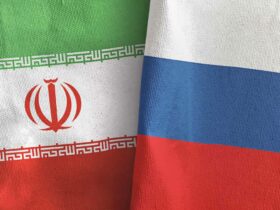The peak of the Covid-19 (coronavirus) epidemic in China has already passed, said Mi Feng, an official representative of the Chinese Health Committee. According to him, currently, with the exception of Wuhan, no new cases of infection have been registered in all cities of Hubei Province for an entire week. Outside Hubei Province, seven new cases have been detected, of which six are imported. The spread of the virus in China has already been stopped.
China’s victory
In other words, China defeated the coronavirus. The key to the victory was not just technical perfection, but also the social technologies demonstrated by China: discipline, coherence of all services, self-sacrifice of doctors, some of whom died but did everything to stop the spread of the epidemic. China was able to quickly and efficiently close cities and multi-million provinces, build hospitals in a matter of days, use the latest technology to control the movement of people and warn of the need to maintain quarantine.
Walking around without a protective face mask? Well, you can't avoid these sharp-tongued drones! Many village and cities in China are using drones equipped with speakers to patrol during the #coronavirus outbreak. pic.twitter.com/ILbLmlkL9R
— Global Times (@globaltimesnews) January 31, 2020
China’s timely and radical action against the coronavirus not only improved prospects in China, but also gave time for the rest of the world to respond. It is not just China which has won, but the Chinese way of life. With the chaos in Europe and the US, and even Iran, the world has a recipe – if you want to face new challenges – be like China: effective, authoritarian, closed, without playing games of democracy and the free market.
China was able to withstand not just the virus, but also the consequences of stopping one third of the economy and surviving the information war unleashed against it when the Western media accused China of underestimating the epidemic. Chinese President Xi Jinping confirmed his Mandate of Heaven. A new legitimization of power has taken place.
Now China has begun supplying medicines, medical masks and equipment to other countries such as Iran and Italy. Chinese volunteers are also headed to Italy.
https://www.facebook.com/photo.php?fbid=3203019116386648&set=a.1090089381012976&type=3&theater.
China can now offer other countries its social and medical technologies. It is important that it now serves as a role model, a source of stability in a chaotic world. China is only strengthening its world leadership. The fall in oil prices will also be very timely for China, allowing for a rapid economic recovery.
While China contained and eliminated the problem, it has spread rapidly in the open society, itself a kind of disease, much like globalization itself.
Following the spread of the coronavirus, states began closing their borders one after another. The US closed its borders with the EU. Denmark and Italy fenced off the rest of the Schengen Area. The closure turned out to be a blessing. The openness preached by liberalist apologists led by George Soros was dangerous and has now proven to be a failed policy. The flows of migrants had already brought the entire structure into question, and the coronavirus seems to have finally killed it.
Famous American historian Niall Ferguson notes that the increased interconnectedness of different parts of the world contributed to the spread of coronavirus. In his opinion, standard epidemiological models tend to underestimate the threat posed by the virus because they do not take into account the topology of social networks that transmit it. The higher the mobility, the more likely the coronavirus is to spread through network hubs.
David Shaywitz, a physician-scientist from Silicon Valley and the neoconservative American Enterprise Institute, argues that “the existence of superspreaders reinforces a concern about the vulnerability of networks.” The world of global networks is becoming a threat to humanity. Even the globalist Jacques Attali now believes that “our production must be different and we must promote a spatial division of labour that is much less dispersed and fragile.”
Coronavirus is forcing the transition from the model or ideal of a global network society to the order of large spaces: closed, limited, separated and self-sufficient. The breakage of connections within the world economy makes autarchy necessary.
The US: a deadly world hegemon
The Global Times notes that the spread of coronavirus in the US could become a “black swan” for the American economy and Donald Trump personally. https://www.globaltimes.cn/content/1181461.shtml.
The Dow Jones has dropped significantly as a result of the outbreak. President Donald Trump is faced with a terrifying dilemma: close the country, running the risk of strangling the economy, or let the virus spread. Both choices endangers his political position, especially in an election year.
BREAKING: Stocks sink after Trump travel ban, underwhelming economic measures add to fears about virus impact; Dow drops 1,600. https://t.co/Uu0mqS3fxd
— The Associated Press (@AP) March 12, 2020
The publication further notes that the US is not ready for the coronavirus epidemic. The administration already recognizes that the vaccine may not be available to many, if not most Americans. This in itself raises questions about US public health policy and quality.
The impact of the corona virus on the global and US economies could be problematic for Trump. A sustained drop in the stock market, combined with the poor handling of the COVID-19 threat, could impact Trump’s election chances.
The fact that the US has become the center of globalization makes it vulnerable to coronavirus. Capitalist ethics and expensive health care are additional factors that make the spread of coronavirus in the US even more dangerous. Adding to this, a presidential campaign with permanent state primary votes, meetings and major demonstrations creates additional opportunities for the spread of the dangerous virus.
With the spread of coronavirus, the presence of multiple military bases across all continents is now a source of threat to Americans themselves, as they are currently exposed to possible infection. Global hegemony is becoming deadly for ordinary Americans.
On March 12, the Pentagon announced a 60-day ban on visits by military, family and civilian personnel of the country’s so-called “Level 3 threat ” (China, South Korea, Italy and Iran) and a ban on official delegations from the “Level 2” countries (so far only Japan). The United States and South Korea have cancelled exercises until the end of the epidemic.
The US officially announced the scaling-back of Defender-Europe 20 due to coronavirus. However, how many thousands of American soldiers will still arrive in Europe affected by the virus is not specified.
Globalism’s last battle
There is no doubt that globalists will try to exploit the epidemic by claiming that the global problem requires a global solution, and that Transnational institutions must be strengthened to address the problem as soon as possible. Will Hutton from the Guardian blames for the pandemic “unregulated world.”
“Now, one form of unregulated, free-market globalization with its propensity for crises and pandemics is certainly dying. But another form that recognizes interdependence and the primacy of evidence-based collective action is being born. There will be more pandemics that will force governments to invest in public health and respect the science they represent – with parallel movements on climate change, the oceans, finance and cybersecurity”… why? “Because we can’t do without globalization.”
Philosopher and political analyst Slavoj Zizek recently presented another – left-wing variation of the same globalist thought: “thinking about an alternate society, a society beyond nation-state, a society that actualizes itself in the forms of global solidarity and cooperation.” According to him “we should start to put together some kind of GLOBAL healthcare network” and prepare for “efficient global coordination.”
However, all previous attempts to strengthen institutions have only failed. Globalization creates the threats that the world’s leading players can and should deal with together, but in a sovereign manner, in dialogues between civilization, in separated and closed spaces.
The coronavirus has pushed mankind to reassess the ideas of globalization and open society, hopefully for good.

















Leave a Reply